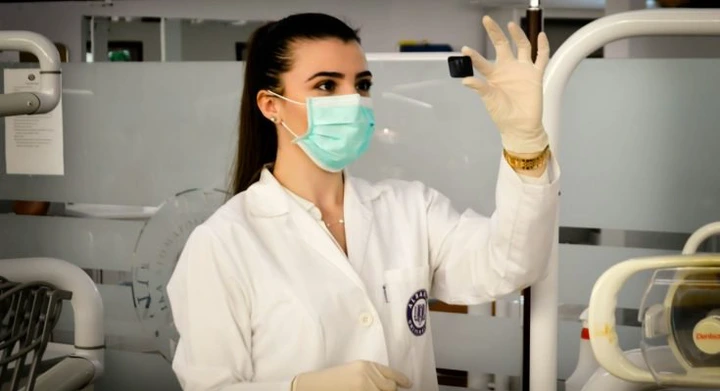8 important medical tests you should take before marriage
Marriage is a beautiful and lifelong commitment, but before saying “I do,” it is important for couples to undergo important medical tests to ensure a healthy future together.
These tests help in preventing potential health risks, ensuring compatibility, and preparing for a healthy family. Ignoring these screenings could lead to unforeseen medical and genetic challenges. Here are the important medical tests every couple must take.
1. Blood Group and Rhesus Factor Test
Understanding blood compatibility is essential, especially for pregnancy. If a woman with Rh-negative blood type marries an Rh-positive man, their baby may develop Rhesus incompatibility, which can lead to severe health issues.
2. Genotype Compatibility Test
This test is crucial to prevent sickle cell disease. If both partners have the AS, SS, or SC genotype, there is a high chance of giving birth to a child with sickle cell anemia, a painful and lifelong condition. Couples should ensure genotype compatibility before marriage.
3. HIV/AIDS Test,HIV (Human Immunodeficiency Virus) is a serious disease that affects the immune system. Getting tested before marriage ensures that both partners are aware of their status and can take the necessary precautions to protect their health and that of their future children.
4. Hepatitis B and C Screening
Hepatitis B and C are viral infections that affect the liver and can be transmitted through unprotected sex, blood transfusion, or from mother to child. Early detection can help in managing the disease and preventing transmission.
5. Fertility Test
Many couples face fertility challenges after marriage without prior knowledge of their reproductive health. Testing for sperm count, ovulation status, and hormone levels can help in identifying any potential fertility issues early and finding possible solutions.
6. Sexually Transmitted Infections (STIs) Screening
STIs such as syphilis, gonorrhea, chlamydia, and herpes can cause complications if left untreated. They may lead to infertility, pregnancy complications, or transmission to the baby. Screening ensures early detection and treatment.
7. Genetic and Hereditary Diseases Screening
Genetic disorders like cystic fibrosis, hemophilia, and Tay-Sachs disease can be passed from parents to children. A genetic screening test helps determine if either partner carries genes for inherited conditions. This makes them plan accordingly.
8. Diabetes and Hypertension Test
Diabetes and high blood pressure (hypertension) can affect fertility, pregnancy, and overall health. Checking for these conditions allows couples to manage their health before starting a family.
These important medical tests before marriage are essential for a healthy and happy future. Couples should visit a qualified healthcare provider for these tests and seek professional advice based on the results.
#health
#marriage 8 important medical tests you should take before marriage
Marriage is a beautiful and lifelong commitment, but before saying “I do,” it is important for couples to undergo important medical tests to ensure a healthy future together.
These tests help in preventing potential health risks, ensuring compatibility, and preparing for a healthy family. Ignoring these screenings could lead to unforeseen medical and genetic challenges. Here are the important medical tests every couple must take.
1. Blood Group and Rhesus Factor Test
Understanding blood compatibility is essential, especially for pregnancy. If a woman with Rh-negative blood type marries an Rh-positive man, their baby may develop Rhesus incompatibility, which can lead to severe health issues.
2. Genotype Compatibility Test
This test is crucial to prevent sickle cell disease. If both partners have the AS, SS, or SC genotype, there is a high chance of giving birth to a child with sickle cell anemia, a painful and lifelong condition. Couples should ensure genotype compatibility before marriage.
3. HIV/AIDS Test,HIV (Human Immunodeficiency Virus) is a serious disease that affects the immune system. Getting tested before marriage ensures that both partners are aware of their status and can take the necessary precautions to protect their health and that of their future children.
4. Hepatitis B and C Screening
Hepatitis B and C are viral infections that affect the liver and can be transmitted through unprotected sex, blood transfusion, or from mother to child. Early detection can help in managing the disease and preventing transmission.
5. Fertility Test
Many couples face fertility challenges after marriage without prior knowledge of their reproductive health. Testing for sperm count, ovulation status, and hormone levels can help in identifying any potential fertility issues early and finding possible solutions.
6. Sexually Transmitted Infections (STIs) Screening
STIs such as syphilis, gonorrhea, chlamydia, and herpes can cause complications if left untreated. They may lead to infertility, pregnancy complications, or transmission to the baby. Screening ensures early detection and treatment.
7. Genetic and Hereditary Diseases Screening
Genetic disorders like cystic fibrosis, hemophilia, and Tay-Sachs disease can be passed from parents to children. A genetic screening test helps determine if either partner carries genes for inherited conditions. This makes them plan accordingly.
8. Diabetes and Hypertension Test
Diabetes and high blood pressure (hypertension) can affect fertility, pregnancy, and overall health. Checking for these conditions allows couples to manage their health before starting a family.
These important medical tests before marriage are essential for a healthy and happy future. Couples should visit a qualified healthcare provider for these tests and seek professional advice based on the results.
#health
#marriage











